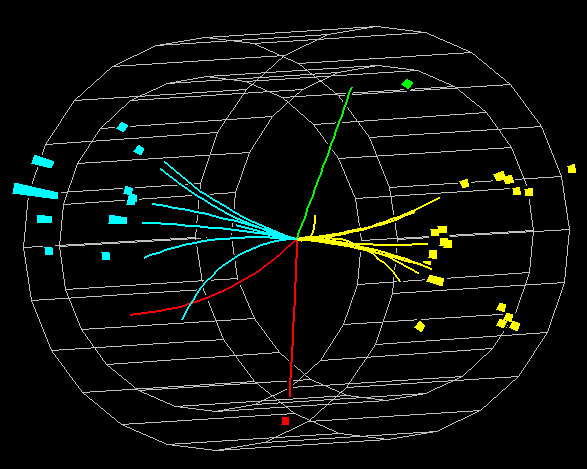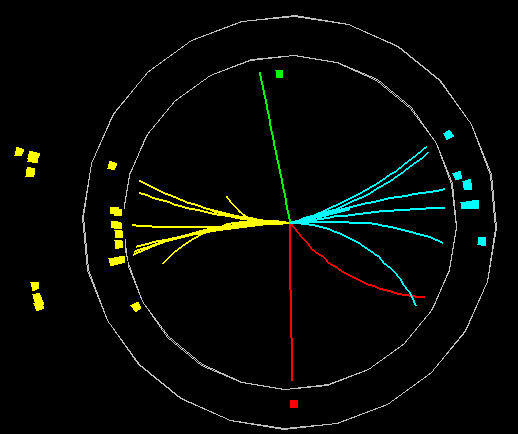
What is Fermilab? - Run II Newscasts - Analyze the Data - Particle Physics Bibliography
What information do we need to identify a known particle or to "discover" a new one?
| ||
 This is a partial side view of tracks in a detector. The little boxes show where energy was deposited. |
 This is the same event from an end view. Notice that some tracks are curved more than others. Particles with greater momenta are affected less by the magnetic field, so their tracks are straighter. | |
|
6 minute video on detector functions 5-minute video on Cerenkov detectors
| To view the videos you need Real Player 7.0 or above. Obtain this free application by clicking on the logo. |
|
Interactive DELPHI events. With your mouse rotate 3-D detector with color-coded tracks. Most events are identified; some aren't. Shows only tracker & calorimeter rings. (May be slow with WIRED.)
Hands on CERN. (Go to "a close look at particle collisions.") Interactive displays of a 1000 actual particle events in DELPHI. You can investigate various relationships such as branching ratios, strong coupling constant. Animated 3-D collisions. Choose known events. Can show or hide detector layers. Rotate or zoom.
Event Collider. Simulation of particles in detectors. You change energy and magnetic field. Events reflect actual percentages of type. (Often very slow loading.)